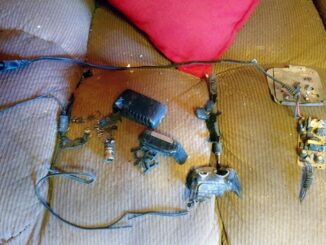
The Department of Foreign Affairs (DFA) on Friday renewed its call for Filipinos in Lebanon to avail of the Philippine government’s repatriation program as majority of the 11,000 prefer to stay in the Middle Eastern country despite the ongoing hostilities between Israel and Hezbollah.
In a press conference, DFA Undersecretary for Migrant Workers Eduardo de Vega reported that the Philippine Embassy in Lebanon has been taking necessary steps to initiate mass repatriation in case the need arises.
However, he said, “so far it’s not going to happen yet, not right now, partly because the Filipino community and their leaders are still very hesitant to leave. This is a sign that they are still relatively safe in Lebanon.”
De Vega said no Filipino has been reported injured so far, but with the resumption of flights out of Beirut on October 10, the DFA is urging Filipinos in Lebanon to voluntarily repatriate.
“We reiterate the call for all Filipinos in Lebanon to avail of the government’s voluntary repatriation program when commercial flights become available and while the situation in Beirut in Lebanon is still relatively stable,” he said.
According to De Vega, those who stayed for many years in Lebanon are the ones who refuse to avail of the repatriation program, and the ones who are relatively new are considering the offer.
He emphasized the need for voluntary repatriation because many Filipinos in Lebanon are not documented with the Department of Migrant Workers (DMW).
“Voluntary repatriation because a lot of Filipinos in Lebanon are not supposed to be there, meaning they entered through third countries [or] in the first place they were not processed with POEA, DMW,” he said.
He recalled the phase repeatedly mentioned by Filipino communities in war-stricken areas, “‘Mas okay na mamatay sa gera kaysa mamatay sa gutom.’ They love saying that.”
This was echoed by Philippine Ambassador to Lebanon Raymbond Balatbat.
“The mentality is, you know, they rather take their chances here than go home and the old timers, especially the ones who have been through most of the wars here, they say that they had seen it all and they will survive,” Balatbat, who joined the press conference virtually, said.
“Of course, there’s an element of loyalty to their employers whom they served for 20, 30 years. Marami sa kanila sila ang nagpalaki sa mga anak ng employer nila. There is a sense of loyalty na they are also part of family and they’ve been guaranteed na kung may mangyari, nagsasama naman sila,” he added.
(Of course, there’s an element of loyalty to their employers, whom they’ve served for 20 or 30 years. Many of them have even raised the children of their employers. There’s a sense of loyalty that stems from feeling like they’re part of the family, and with that comes an assurance that if something were to happen, they would be taken care of together.)
Earlier this week, the DFA said more than 1,000 Filipinos in Lebanon have sought assistance from the Philippine government to be repatriated.
However, Balatbat said around half of them have eventually withdrawn their applications and “changed their minds.”
Despite the resistance from Filipinos in Lebanon, De Vega said the Philippine Embassy is operating “as if its Alert Level 4 is already in place or about to be placed.”
According to De Vega, Lebanon was placed under alert level 3 even before the conflict in Israel and Palestine arose.
Should there be a ground invasion of Lebanon, Balatbat said it will trigger mass repatriation.
“They will only decide to leave when the situation is so bad, when the war is at their doorstep saka sila magpapa-[repatriate] (that’s when they will seek repatriation),” he said.
In the same press conference, De Vega expressed the call of the Philippine government to seek peaceful resolution in the conflicts happening in the middle east.
“While this is happening, the Philippines reiterates its call to all parties to reduce tensions, prevent further escalations, and urge for peaceful solution… in a very important region where millions of overseas Filipino workers reside,” De Vega said.
In an advisory on Monday, the embassy asked Filipinos in the southern part of Lebanon to regularly check the local news and remain indoors until the bombings stop.
Filipinos were also advised to communicate with the Philippine Embassy, at 70- 858-086, and the Migrant Workers Office, at 79-110-729, in Lebanon. —AOL, GMA Integrated News





Be the first to comment